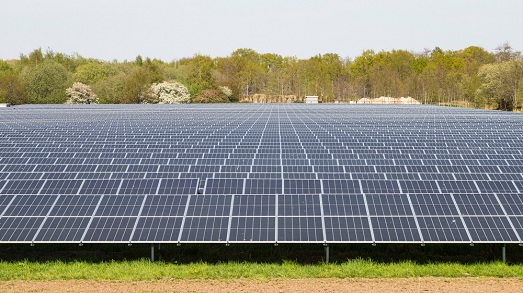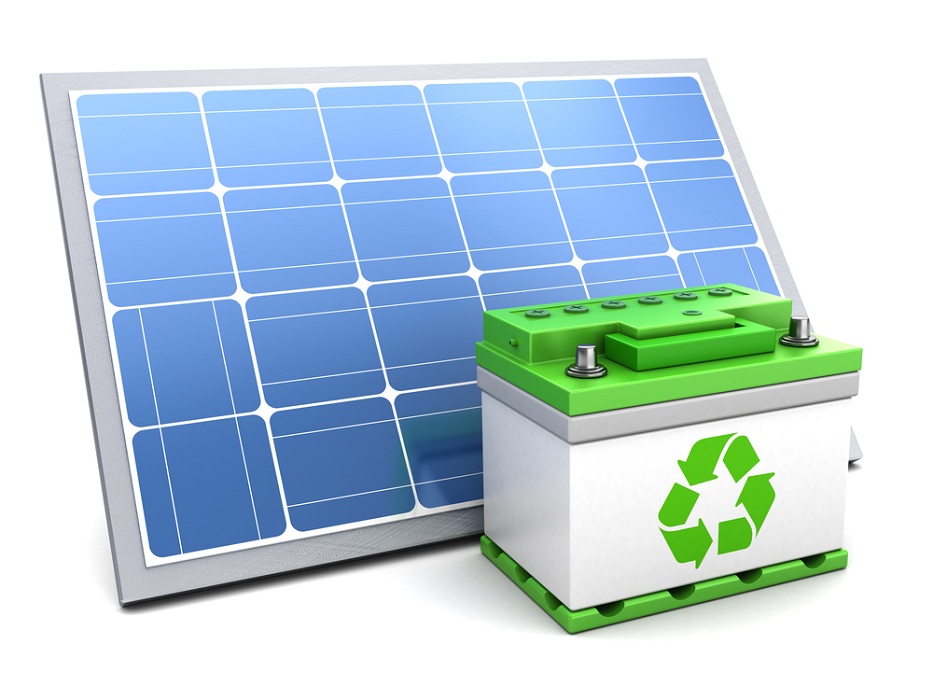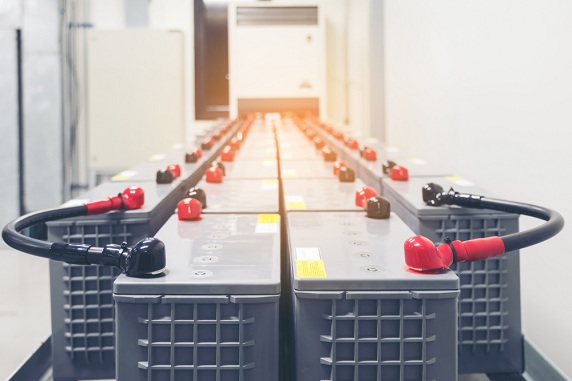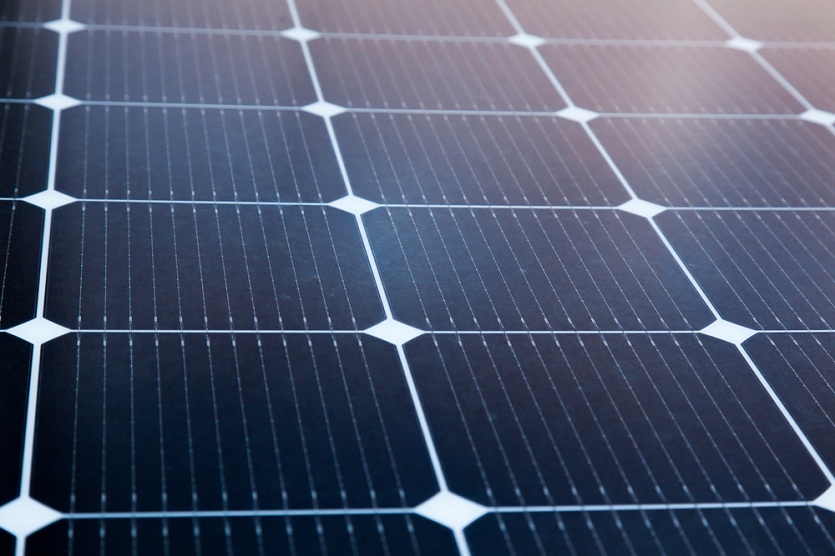One 100-watt solar cell can easily charge a 100Ah 12v battery; however, it might take a long time, so you may need more solar panels if you plan to discharge your battery daily.
In addition, the battery type you are charging will determine how much usable energy you can get from your 100W solar panel daily.
Types Of Batteries And Their Advantages/Disadvantages For Solar Power Applications
The two main types of batteries are lead acid, lithium-ion (Li), and Lithium-ion Phosphate (LiFePO4).
Lead acid batteries are the least expensive type of solar battery but don't last as long as other types.
The advantage of lead-acid batteries is that they're cheap and easy to find. They also work well in cold weather because they store heat better than other types of batteries.
Their disadvantage is that they only hold about 80% of their full capacity after being charged for a year.
In addition, only about 50% of their rated Wh capacity can be used because they can only be safely discharged to 50%. You'll need to purchase more lead acid batteries than Li batteries for the same application.
If saving money is your top priority and you don't need your solar power system to be mobile, lead-acid batteries are a good choice.
Lithium-ion batteries are more expensive, but they last much longer than lead-acid batteries, weigh less and can be recharged far more times without losing much of their capacity.
Li batteries are the best choice for mobile / portable power stations and applications due to their lightweight and mid-range price.
Lithium-ion Phosphate batteries are the most expensive of the three types, but they last much longer than traditional Li batteries, and weigh more than Li batteries.
LiFePO4 batteries are the best choice for fixed installations like home backup power and off-grid homes where batteries will be cycled daily.
How much energy (kWh) does a 100-watt solar panel produces?
The 100W solar panel the most popular size because it is lightweight and versatile. It's used mainly within the camping, recreation vehicle, and boating sectors.
This is because they're easy to transport or install. Providing free, clean, safe power for people who enjoy the great outdoors
However, a 100-watt solar power system is not powerful enough to power any sized home.
So how many kilowatt hours (kWh) will it generate?
Theoretically, a 100-watt solar cell can produce 1-kilowatt hour (KWh) of energy per day if exposed to direct sunlight for 10 continuous hours - here's the math:
100W x 10 hours = 1,000Wh = 1kWh
Of course, you probably can't rely on 10 hours of direct sunlight in real-world conditions.
In addition, the angle of attack, shade, and ambient temperature will impact the actual power output of any solar panel.
Most solar power installers assume 4-6 hours of peak output from each solar panel for planning purposes. And they reduce the power output for environmental factors.
This means you will probably need 2-3 times more solar panels than theory might dictate.
Now, consider that the average American household uses 30-kilowatt hours (kWh) per day.
This explains why higher-power solar panels are used in residential installations.
And why 100-watt panels are used mostly in portable solar generators, smaller RVs and boats, and smaller off-grid installations.
Energy Production Naturally Changes In Solar Panels During The Day And Different Weather And Shade Conditions

Solar cells produce energy when light hits the surface of the solar cell. This happens when there is enough sunlight on the solar cell.
When the sun is shining directly onto the solar cell, the amount of energy produced by the solar cell increases. However, this effect decreases when the sun moves away from the solar cell.
On cloudy days, the amount of energy generated by the solar cell decreases. In addition, the amount of energy decreases when the sun is behind trees or buildings.
If clouds completely cover the sun, no sunlight reaches the solar cell. The amount of energy produced by a solar cell under these circumstances is zero.
For example, If you have a solar cell array capable of generating 2,500 Watts of power but only receiving 1,500 Watts of sunlight at a given time, then the solar array would generate perhaps 1,000 Watts of power depending on the angle of attack and the solar panel's efficiency.
The power produced by solar cells also varies throughout the day. On sunny days, the amount of solar power reaching the solar cell can vary from 5% to 100%.
Role Of A Charge Controller In Keeping Batteries Safe While Charging
A charge controller regulates the flow of current into the battery. When the battery is fully charged, the charge controller stops the flow of current into it.
This prevents overcharging the battery. Overcharging damages the battery and reduces its life span.
In addition, a charge controller protects against short circuits. Short circuits occur when the battery contacts another metal object.
Short-circuited batteries can cause fires. Therefore, a charge controller keeps the battery safe.
Tips while Charging Batteries Using 100W Solar Panels

While charging a battery using a 100-watt panel, make sure the following things happen:
Be Careful With The Connection Of Your Battery System
Be careful when connecting your battery system to your home wiring.
Connecting your battery system incorrectly could cause serious damage.
Make sure the battery is connected to the positive terminal of the charger. Do not connect more than one battery to the same charger.
Use High-Efficiency Batteries
Batteries are the lifeblood of any battery system. Without batteries, solar panels would be useless.
So, you need to ensure that the batteries you use are efficient. If you use low-efficiency batteries, you'll waste a lot of energy.
Low-efficiency batteries may cost less initially, but they won't last as long as high-efficiency batteries.
Charge Battery System During Off-Peak Hours
During off-peak hours, the amount of sunlight is reduced. This makes it difficult to generate electricity using solar panels.
Therefore, you should charge your battery system during off-peak hours.
This will allow you to save energy and reduce costs.
Install a Battery Management System

Installing a battery management system is essential for a successful battery system.
It allows you to monitor the status of each battery and control its charging and discharging.
A battery management system helps you avoid overloading and underloading individual batteries.
Monitor Battery Voltage Levels
Monitoring battery voltage levels is another key step in a successful battery system installation project.
Without monitoring battery voltage levels, you'll risk damaging your batteries.
In addition, you'll waste a significant amount of energy.
Avoid Overheating Batteries
Overheating batteries is another common problem associated with battery systems.
When temperatures rise above 40 degrees Celsius, lithium-ion batteries become damaged.
To prevent overheating, you should install fans near batteries.
These fans will cool down the batteries and protect them from damage.
Don't Forget About Maintenance
Maintaining a battery system requires regular maintenance.
Regular maintenance ensures that your battery system operates efficiently.
You should perform regular maintenance every month.
Ensure Proper Installation
Proper installation is critical for a successful battery system project.
Make sure that you follow the manufacturer's instructions carefully.
Doing so will ensure that your battery system works properly.
Maintain Your Battery System Regularly

Maintaining your battery system regularly is another important step in a successful battery project.
You should clean the surface of your batteries after every use.
Cleaning the surface of your batteries prevents corrosion and improves performance.
Prevent Overloading and Underloading Batteries
Preventing overloading and underloading batteries is another important step in keeping your battery system running smoothly.
You should do this by following the guidelines provided by the manufacturers.
Always Disconnect From Power Source Before Changing Outages
Always disconnect from the power source before changing outages. Doing so will prevent fires and electrical shocks.
Final Thoughts
The number of batteries you will need depends on the capacity of the solar panels installed.
Therefore, you should choose the appropriate size of batteries based on the capacity of the installed solar panels.
Remember that installing more batteries than required will increase the cost of your battery system.
Also, remember that installing fewer batteries than required will reduce the efficiency of your battery system.
If you are considering installing a solar panel system for your house, check out our buying guide to learn Best Solar Generators for Camping, Boating, and RVs Use


